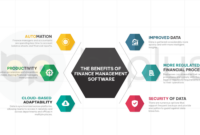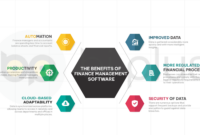Financial Management website will share article about typical investment banking fees it in full. This is one of the popular topics that are being searched for on the internet.
Typical Investment Banking Fees: A Guide For 2023
Introduction
Investment banking is an essential aspect of the finance industry that plays a crucial role in providing financial advice and raising capital for businesses. However, investment banking services come at a cost. In this article, we will discuss the typical investment banking fees that businesses can expect to pay in 2023.
What are Investment Banking Fees?
Investment banking fees refer to the charges levied by investment banks for providing financial services to businesses. These fees are typically calculated as a percentage of the total transaction value and can range from a few hundred thousand dollars to millions of dollars.
1. Mergers and Acquisitions (M&A) Fees
One of the most common investment banking services is M&A advisory. Investment banks provide guidance to businesses on mergers, acquisitions, and divestitures. M&A fees usually range from 1% to 5% of the total transaction value.
2. Underwriting Fees
Underwriting is a process where investment banks help businesses raise capital by issuing stocks or bonds. Underwriting fees are typically 1% to 7% of the total issue size.
3. Debt Financing Fees
Investment banks also help businesses raise debt financing. Debt financing fees are usually 1% to 3% of the total amount raised.
4. Equity Financing Fees
Equity financing fees are levied by investment banks to help businesses raise capital by issuing equity. Equity financing fees range from 2% to 7% of the total issue size.
5. Advisory Fees
Advisory fees are charged by investment banks to provide strategic financial advice to businesses. Advisory fees are typically hourly or project-based and can range from a few thousand dollars to millions of dollars.
6. Reorganization and Restructuring Fees
Investment banks also provide reorganization and restructuring services to businesses. These services include debt restructuring, bankruptcy advisory, and distressed asset sales. Reorganization and restructuring fees are typically hourly or project-based.
7. Recapitalization Fees
Recapitalization is a process where a business changes its capital structure to optimize its financials. Investment banks provide guidance on recapitalization and charge fees ranging from 1% to 5% of the total transaction value.
8. Due Diligence Fees
Due diligence is a process where investment banks perform a detailed analysis of a business’s financials to assess its value. Due diligence fees are typically hourly or project-based and can range from a few thousand dollars to millions of dollars.
9. Success Fees
Success fees are charged by investment banks after a successful transaction. These fees are typically a percentage of the total transaction value and can range from 1% to 5%.
10. Retainer Fees
Retainer fees are charged by investment banks to businesses for exclusive access to their financial services. Retainer fees are typically monthly or annual and can range from a few thousand dollars to millions of dollars.
Conclusion
Investment banking fees can be significant, and businesses must be aware of the typical fees they can expect to pay. The fees charged by investment banks depend on the nature of the financial services provided, the transaction size, and the complexity of the deal. By understanding these fees, businesses can make better financial decisions and negotiate better deals.
People Also Ask
What is the average investment banking fee?
The average investment banking fee varies depending on the financial services provided and the transaction size. However, investment banking fees typically range from 1% to 7% of the total transaction value.
How do investment banks make money?
Investment banks make money by charging fees for providing financial services to businesses. These fees can include M&A advisory fees, underwriting fees, debt financing fees, equity financing fees, advisory fees, reorganization and restructuring fees, recapitalization fees, due diligence fees, success fees, and retainer fees.
Can businesses negotiate investment banking fees?
Yes, businesses can negotiate investment banking fees. However, the negotiation power depends on the nature of the transaction, the competition among investment banks, and the business’s financial standing. Businesses should do their due diligence and research to negotiate better deals.
Related Article about Typical Investment Banking Fees: A Guide For 2023
Thank you for reading this article to the end. Don’t forget to visit this website again and share this article Typical Investment Banking Fees: A Guide For 2023 for your friends. We always try to present the best for our visitors, there are many other interesting articles, such as :




